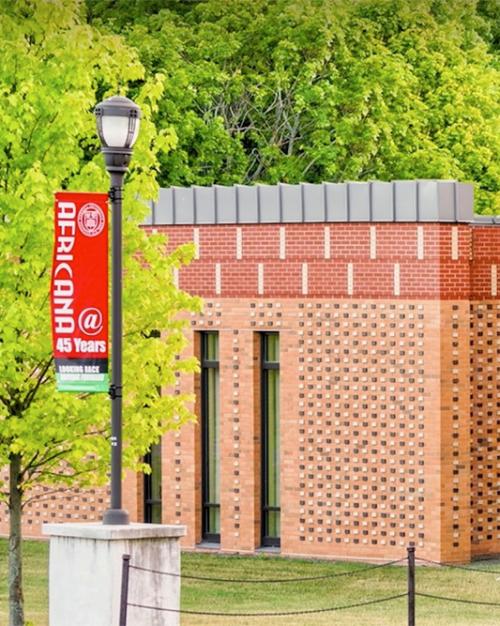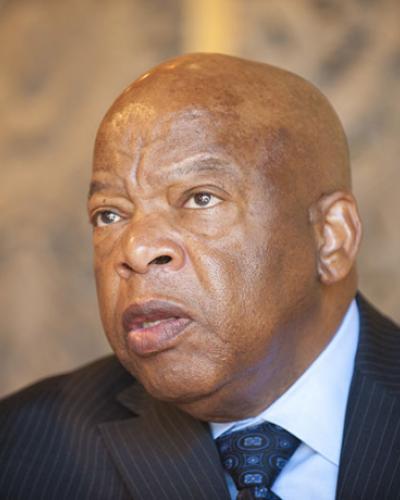We honor and salute the life and legacy of John Lewis. His contributions also make him a foremost leader in the black liberation movement and quintessential emblem of the black radical tradition, areas that many scholars study and celebrate within the field of Africana studies, including Africana@Cornell. In choosing to dedicate his life and work to the struggle to challenge racism and oppression, he paved the way, quite literally, for generations of activists and political leaders, including the road toward Black Lives Matter protests that unfolded around this nation and around the globe in the wake of the tragic death of George Floyd at the hands of police in Minneapolis, Minnesota in May.
Lewis, who was born in Troy, Alabama on February 21, 1940, was an aspiring preacher who got his BA from the American Baptist Theological Seminary in 1961. He went on to attend Fisk University where he studied religion and philosophy. He became a student activist and was well on his way as a leader in the black freedom struggle at age 23 as the youngest keynote speaker to address the audience at the March on Washington on the nation’s capital as the chairman of the Student Nonviolent Coordinating Committee (SNCC). His activism and sacrifices, including his heroism on the Edmund Pettus Bridge during the Selma-to-Montgomery march for black voting rights in 1965 in Selma where he was beaten, along with his political leadership in Congress for Georgia's 5th congressional district since 1987, have made him a global icon positioned at the vanguard as a champion of civil and human rights. The minister Rev. James Reeb was beaten with clubs by a group of white men in Selma on March 11, 1965 and died while he was in the area participating in the Selma-to-Montgomery march. In Alabama, U.S. Highway 80, which leads to the bridge where Lewis's infamous beating took place on a day that in history became known as “Bloody Sunday,” is also the road where the white Detroit housewife Viola Liuzzo was slain by a Ku Klux Klan member in the wake of the march. Moreover, this is the road where the lynching of black entrepreneur Elmore Bolling had occurred in 1947. Bolling, who is among the many black lives lost to lynching now memorialized at the National Memorial for Peace and Justice in Montgomery, Alabama, established by Bryan Stevenson and the Equal Justice Initiative, was ambushed by a vigilante among local whites who had been intimidated by Bolling’s successful trucking business, property and store ownership. Highway 80 is also not far from the place in Hayneville, Alabama where the young seminarian Rev. Jonathan Daniels was slain in 1965 by a deputy as he worked with SNCC to advocate for black voting rights, and sacrificed his life to protect that of the black teen girl activist Ruby Sales. The road, like the bridge on which Lewis was beaten, was bloody and a place where painful and tragic incidents played out.
Throughout his life, John Lewis’s efforts to advocate for freedom and civil rights, including voting rights, were illustrations of the “good trouble” to which he committed himself as an activist, in the effort to help make the world better, which is fittingly the title of the documentary about his life directed by Dawn Porter that was released recently.
In the 2020 election year, and at such a crucial time, it is important to remember the example of John Lewis now more than ever, including the courageous struggle that he led to advocate for voting rights. His legacy is a powerful reminder of the importance of voting, and that voting rights have been hard won and should never be taken for granted. Protecting them in this nation is part of honoring freedom and democracy.





